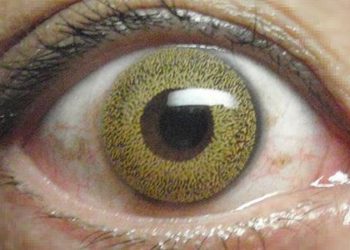Low-dose yellow fever vaccine non-inferior to standard dose
1. This randomized controlled trial conducted in Kenya and Uganda assessed whether fractional doses of the 17D-204 yellow fever vaccine were noninferior to the standard dose in terms of seroconversion at 28 days post-vaccination.
2. The 500 IU and 1000 IU doses were found to be noninferior to the standard dose, achieving similar seroconversion rates, whereas the 250 IU dose did not meet noninferiority criteria in the per-protocol analysis.
Evidence Rating Level: 1 (Excellent)
Study Rundown: Yellow fever is a mosquito-borne viral disease endemic to Africa and South America, causing an estimated 100,000 severe cases annually, with a fatality rate of 20–60%. The 17D live-attenuated yellow fever vaccine provides lifelong immunity with a single dose. This study aimed to evaluate fractional dosing as a potential strategy for yellow fever vaccine conservation, given the global vaccine supply limitations. The trial enrolled 480 participants, who were randomized to receive either the standard dose (13,803 IU) or fractional doses (1000 IU, 500 IU, or 250 IU). Seroconversion was measured at 28 days post-vaccination, using a plaque reduction neutralization test (PRNT50). The 500 IU and 1000 IU doses demonstrated noninferiority to the standard dose, while the 250 IU dose narrowly failed the noninferiority criteria in the per-protocol population. The incidence of adverse events was similar across all groups, with most reactions being mild or moderate. The long-term immunogenicity of the fractional doses remains under investigation, with follow-up data up to two years post-vaccination showing some decline in antibody titers. This study provides strong evidence supporting the use of 500 IU doses as a dose-sparing strategy during vaccine shortages.
Click to read the study in NEJM
In-Depth [randomized controlled trial]: This randomized, double-blind, noninferiority trial, known as the NIFTY study, was conducted in Kenya and Uganda to evaluate whether fractional doses of the yellow fever vaccine (1000 IU, 500 IU, and 250 IU) were noninferior to the standard 13,803 IU dose in terms of seroconversion at 28 days post-vaccination. The study enrolled 480 participants, who were randomly assigned in equal groups to receive one of the four doses. Seroconversion was defined as a fourfold increase in antibody titers, measured by plaque reduction neutralization tests (PRNT50 and PRNT90). At day 28, the standard dose achieved a seroconversion rate of 98% (95% Confidence Interval [CI], 94–100), while the 1000 IU and 500 IU doses also reached 98%, confirming noninferiority. The 250 IU dose had a slightly lower seroconversion rate of 94% (CI, 88–97) and failed noninferiority criteria in the per-protocol analysis. The difference in seroconversion between the 500 IU and standard dose was 0.01 percentage points (CI, −5.0 to 5.1), confirming equivalence. At two-year follow-up (day 730), geometric mean titers declined across all groups, with the 500 IU and 1000 IU doses maintaining strong immunity, while the 250 IU group showed the lowest levels. The incidence of adverse events was similar across all groups, with most reactions being mild (76%) or moderate (23%). The most common side effects were headache (14%), upper respiratory tract infection (8%), and dizziness (8%), with no significant safety concerns. These findings provide strong evidence supporting the 500 IU dose as a viable dose-sparing strategy for yellow fever vaccination. Given global vaccine shortages, fractional dosing at 500 IU or higher could significantly expand vaccine availability without compromising immune protection.
Image: PD
©2025 2 Minute Medicine, Inc. All rights reserved. No works may be reproduced without expressed written consent from 2 Minute Medicine, Inc. Inquire about licensing here. No article should be construed as medical advice and is not intended as such by the authors or by 2 Minute Medicine, Inc.









